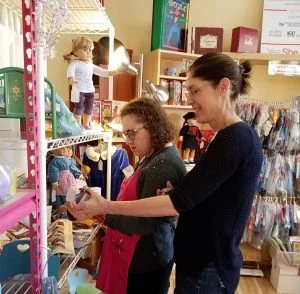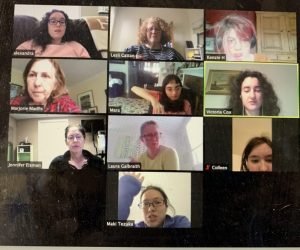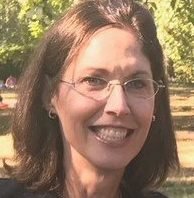Our work environments are not sealed off from the events in the world and news of them, particularly when they are traumatic. Yes She Can Senior Work Skills Coach, Jennifer Eisman, MSW, reflects on how the murder of George Floyd and the subsequent protests have impacted the participants in our training program, and the role of the coach.
 On a typical day as a job coach at Yes She Can we cover a wide range of technical skills, interpersonal social skills as well as social emotional regulation. These discussions are all critical to help develop a range of skills, self-confidence, competence and self-worth. The ultimate goal is for our trainees to be prepared to work and obtain employment which will provide them with independence and personal fulfillment.
On a typical day as a job coach at Yes She Can we cover a wide range of technical skills, interpersonal social skills as well as social emotional regulation. These discussions are all critical to help develop a range of skills, self-confidence, competence and self-worth. The ultimate goal is for our trainees to be prepared to work and obtain employment which will provide them with independence and personal fulfillment.
Very often we need to make judgements about when the technical accomplishment is the priority and when do we stay focused on interpersonal or emotional regulation skills. This has never been a more important question for us!
 In this time of physical distancing and now, with racial tensions coming to the forefront, the questions being asked revolve around protests, Black Lives Matter and social injustice. What place do these all-consuming and life defining moments have in a work readiness program? Sometimes the answer is everything and sometimes it is next to nothing. The range and the moments of deciding when to engage and pursue a conversation about current events and when to deflect or redirect is always on our minds.
In this time of physical distancing and now, with racial tensions coming to the forefront, the questions being asked revolve around protests, Black Lives Matter and social injustice. What place do these all-consuming and life defining moments have in a work readiness program? Sometimes the answer is everything and sometimes it is next to nothing. The range and the moments of deciding when to engage and pursue a conversation about current events and when to deflect or redirect is always on our minds.
As Marjorie Madfis, President, Executive Director of Yes She Can, described our trainees in her blog post, We Stand in Solidarity, “Each young woman has a different cognitive and emotional ability to process these current events. Some participants are able and interested in discussing these issues to better understand while others are either minimally aware or overwhelmed by these events”.
It is our job to help guide those who want to dive deeper into how we can be a part of the bigger conversation, but it can also be to protect or shield those that don’t have the capacity to handle what can be very overwhelming information.
In our smaller group training sessions, we have the opportunity to personalize some of the answers. We can explore those that want to be a part of the world’s conversation and find ways that our small but mighty organization can contribute, whether it’s with a blog post, joining blackout Tuesday or setting up a doll display with a diverse selection of cultures (all ideas that came from our trainees)!
At another session, the focus may just be about understanding that when one goes to work, colleagues may talk about things happening in the community at large and right now those conversations are a lot about race. Do they feel comfortable having those conversations with colleagues? Do they have thoughts on the matter? Do they need help considering or being sensitive to another person’s experience or a colleague’s point of view?
One of our trainees didn’t know much if anything about the protests – she doesn’t watch the news, but she could reflect from a personal place once racism and its meaning were outlined for her. We were able to have a brief conversation about what it feels like to sometimes feel different or left out. Both sessions were meaningful, impactful and appropriate for the small group of women eager to grow and learn in their own way in their own time.
In the end, I feel our job is to guide, sometimes to steer, but mostly, our job is to listen. Our woman at Yes She Can have a lot to say…
 By Jennifer Eisman, MSW
By Jennifer Eisman, MSW
Leave a Reply